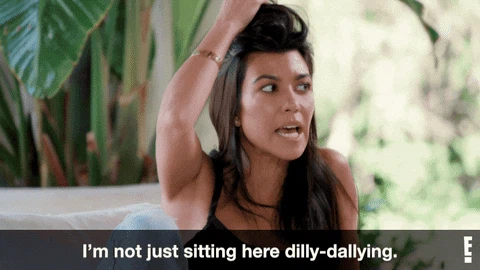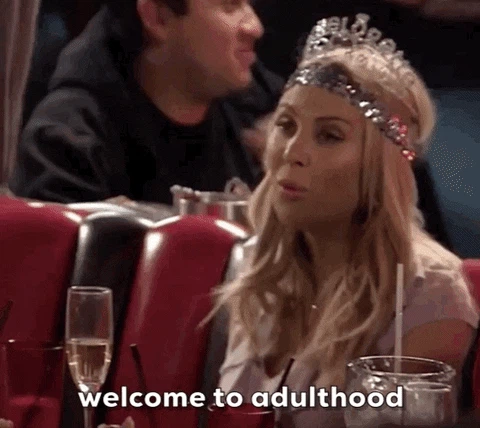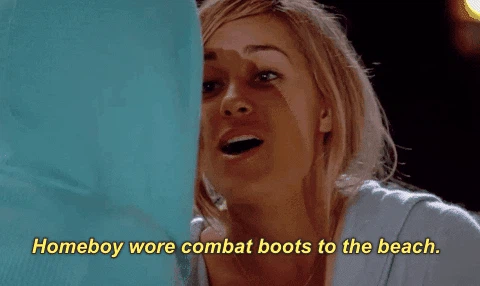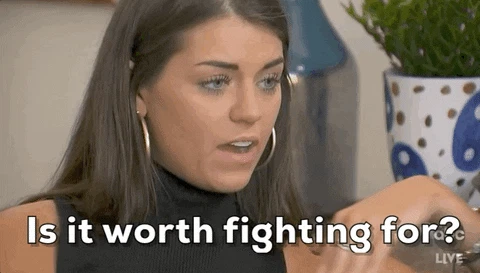5 Things That Change When You Transition From College Dating To Post Grad Dating
It’s summer, which means it’s graduation season!

Although the COVID-19 crisis will keep many of us from attending our favorite summer concerts and baseball games, restaurants and bars are finally starting to reopen. This means it’s time for some of us to get out of our sweatpants and start going on dates again. However, dating in the real world and dating in college are totally different worlds.
Here’s a breakdown of some of the biggest changes you’ll experience when you transition from dating in college to dating after college.
Your Priorities Will Change
Life changes quickly after graduation. After four years of living in a community with people close to your age and going to the bars every weekend, the real world is a bit of a shock to the system. Your priorities in life will start to change, and so will your priorities in dating.
When I was in college, I knew I wanted a relationship, but I never thought about how it would work out long-term. I was more concerned about finding a guy to spend my weekends with and who would go to my sorority’s formal with me than someone I could have a long-term relationship with and possibly marry.
This makes you look differently at the guys you date because you’ll likely start taking things more seriously. Some things that were once acceptable will no longer be acceptable, like if he drinks too much or doesn’t take anything seriously.

Your priorities will not only change, but they’ll change for the better and lead to more fulfilling relationships. You’ll know you’ve matured when you look back on some of your college dating situations and laugh — unless you’re one of the lucky ones who ended up with your high school or college sweetheart.
You’ll Have To Go on Actual Dates
College dating is weird because you rarely go on dates. Sure, you watch Netflix together and go out together on weekends, but you rarely go on actual dates. This is why so many of us ask “What are we?” because it’s hard to tell whether or not you’re dating or just hanging out. This changes when you graduate because you’ll actually have to go on real dates.

First dates after college usually consist of going out for coffee, lunch, or dinner, and you have to have conversations beyond “So, what’s your major?” and “Where are you from?”. You never know what kind of guy you’ll meet on a first date, even if you’ve hung out before or have been talking to him on a dating app for a few weeks. Sometimes they’re terrible, and sometimes you’ll have the time of your life.
It’s important to always be yourself on a first date because it’s the best way to reign in your nerves. You have nothing to be nervous about if you’re just yourself, and if he doesn’t like you for who you are, that’s his loss.
You Might Date People You Never Would Have Dated in College
Since your priorities in dating after college change, your standards will likely change as well. This could be a good thing or a bad thing, depending on if your standards change for better or for worse. If your priorities change for the better, you will likely date guys who are better than the ones you dated in college. This continues as you move through your twenties. For example, I’m in my mid-twenties, and I cringe at the thought of some of the guys I was into in my early twenties.

However, this can also change for the worst. Sometimes we don’t want to be alone so we lower our standards to avoid feeling lonely. It’s a mistake most of us make, but it’s important to learn from mistakes like these. If you don’t see the potential for a future with a guy, it’s best to cut things off early. Nobody is going to want to marry a guy they don’t see themselves with in the long run, so why should we continue to date them?
It’s Harder To Find Someone after College, and That’s Okay
Most colleges are essentially small towns full of 18 to 22-year-olds, meaning you’re surrounded by hundreds (if not thousands) of guys your age. While going to class, the dining hall, and off-campus bars, you have countless opportunities in college to meet someone. This changes in the real world because you’ll be surrounded by people of different ages and backgrounds.

This can be a good thing because you can learn more about the experiences of others, but it also means there are fewer fish in your local sea. It sucks that you often have to go out of your way to find someone, instead of reasonably hoping you’ll meet someone you like in class, but good things like a good boyfriend aren’t supposed to be easy to find. Just make sure you don’t let the fear of being lonely trap you in an unfulfilling relationship. It’s better to be alone and happy than with someone and miserable.
You’ll Get Asked, “So, when are you going to get married?”
The average age for an American woman's first (and hopefully only) marriage is 27 years old. Though it’s only a few years older than 23, which was the average age for a woman’s first marriage in 1990, it’s a few years after you graduate college. This can lead to family members asking when you’re going to settle down as you enter your mid-twenties.

This can be annoying because it’s a big jump from “How are your classes going?”, but it’s important to remember that getting married in your early twenties was the norm only a few decades ago. Your relatives asking this most likely don’t mean it maliciously or to be annoying. When you’re asked this question, it’s important to be honest and polite. Family gatherings are awkward enough as it is, there’s no need to make it even worse.
It’s also important to not let the pressure from family members get to you. Some of us find our future husband in our early twenties, and some of us have to wait a bit longer. Your prince will come someday, and you shouldn’t settle for a frog from the pressure to get married.
Closing Thoughts
A lot of things change when you graduate from college, and dating is no exception. Change can be scary, but it doesn’t have to be. It’s important to embrace these changes for the best dating experience after graduation.